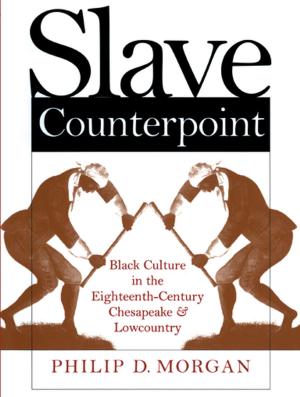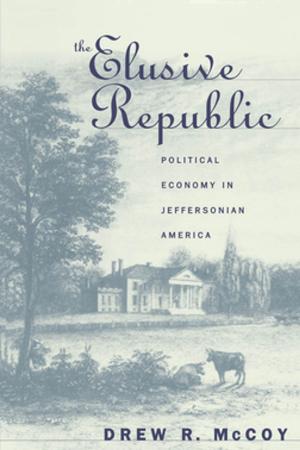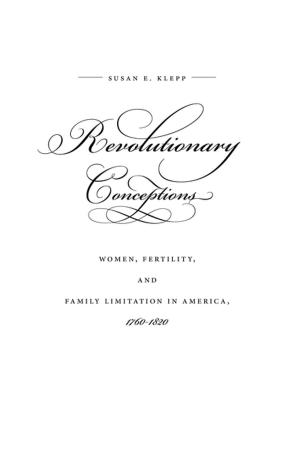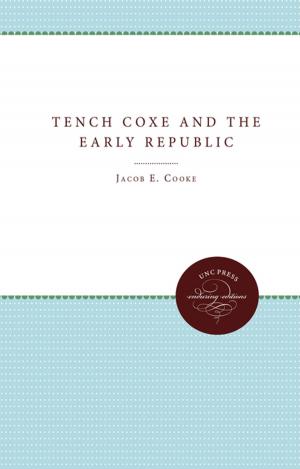Foul Means
The Formation of a Slave Society in Virginia, 1660-1740
Nonfiction, History, Americas, United States, Colonial Period (1600-1775), Social & Cultural Studies, Social Science, Cultural Studies, African-American Studies| Author: | Anthony S. Parent | ISBN: | 9780807839133 |
| Publisher: | Omohundro Institute and University of North Carolina Press | Publication: | December 1, 2012 |
| Imprint: | Omohundro Institute and University of North Carolina Press | Language: | English |
| Author: | Anthony S. Parent |
| ISBN: | 9780807839133 |
| Publisher: | Omohundro Institute and University of North Carolina Press |
| Publication: | December 1, 2012 |
| Imprint: | Omohundro Institute and University of North Carolina Press |
| Language: | English |
Challenging the generally accepted belief that the introduction of racial slavery to America was an unplanned consequence of a scarce labor market, Anthony Parent, Jr., contends that during a brief period spanning the late seventeenth and early eighteenth centuries a small but powerful planter class, acting to further its emerging economic interests, intentionally brought racial slavery to Virginia.
Parent bases his argument on three historical developments: the expropriation of Powhatan lands, the switch from indentured to slave labor, and the burgeoning tobacco trade. He argues that these were the result of calculated moves on the part of an emerging great planter class seeking to consolidate power through large landholdings and the labor to make them productive. To preserve their economic and social gains, this planter class inscribed racial slavery into law. The ensuing racial and class tensions led elite planters to mythologize their position as gentlemen of pastoral virtue immune to competition and corruption. To further this benevolent image, they implemented a plan to Christianize slaves and thereby render them submissive. According to Parent, by the 1720s the Virginia gentry projected a distinctive cultural ethos that buffered them from their uncertain hold on authority, threatened both by rising imperial control and by black resistance, which exploded in the Chesapeake Rebellion of 1730.
Challenging the generally accepted belief that the introduction of racial slavery to America was an unplanned consequence of a scarce labor market, Anthony Parent, Jr., contends that during a brief period spanning the late seventeenth and early eighteenth centuries a small but powerful planter class, acting to further its emerging economic interests, intentionally brought racial slavery to Virginia.
Parent bases his argument on three historical developments: the expropriation of Powhatan lands, the switch from indentured to slave labor, and the burgeoning tobacco trade. He argues that these were the result of calculated moves on the part of an emerging great planter class seeking to consolidate power through large landholdings and the labor to make them productive. To preserve their economic and social gains, this planter class inscribed racial slavery into law. The ensuing racial and class tensions led elite planters to mythologize their position as gentlemen of pastoral virtue immune to competition and corruption. To further this benevolent image, they implemented a plan to Christianize slaves and thereby render them submissive. According to Parent, by the 1720s the Virginia gentry projected a distinctive cultural ethos that buffered them from their uncertain hold on authority, threatened both by rising imperial control and by black resistance, which exploded in the Chesapeake Rebellion of 1730.















